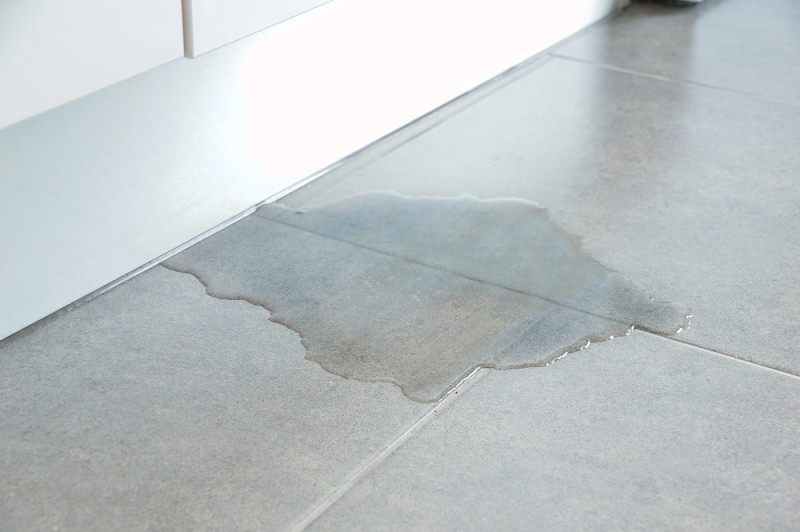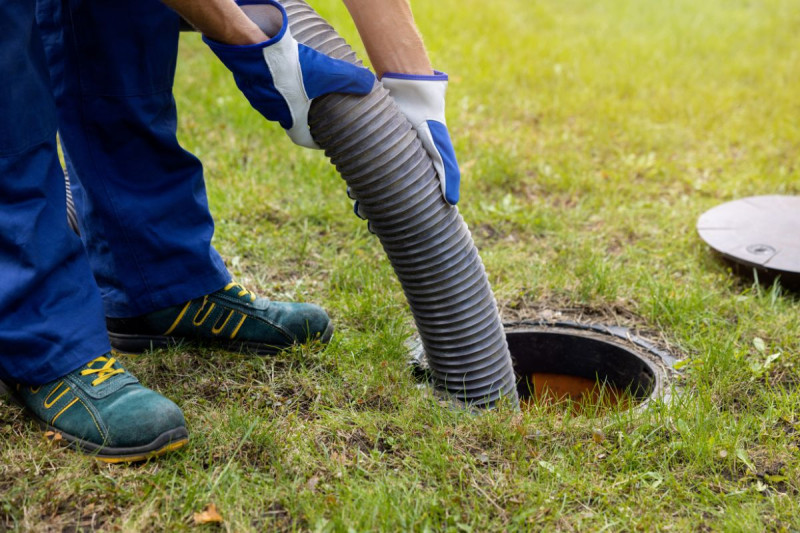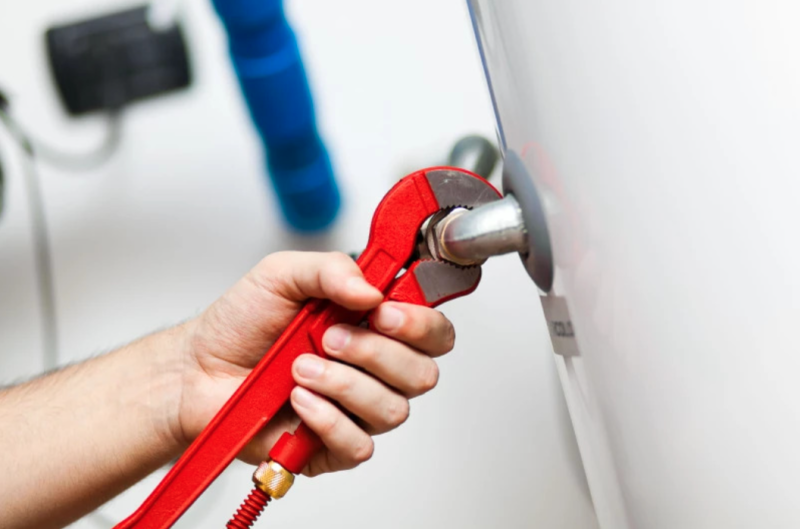Have you ever been startled by a loud banging noise coming from your pipes? This unsettling sound is known as a water hammer. Water hammering typically occurs when a tap is turned off suddenly, causing a high-pressure shockwave to travel through your water pipes, creating that notorious loud hammering noise. Not only is this sound really annoying, but it can also lead to significant damage if not addressed promptly. From understanding the mechanics behind water pipe hammering to implementing a water hammer fix, we’ll guide you through everything you need to know to protect your plumbing system and restore peace and quiet to your home.
Can’t stand the water hammer sound? Call a local plumber from Swan’s Professional Plumbing today for a quick and effective fix!
What is a water hammer?
Water hammer, also known as hydraulic shock, is a phenomenon that occurs in plumbing systems when the flow of water is suddenly stopped or changed, causing a shockwave that can lead to loud banging noises in the pipes. This typically happens when a tap or appliance quickly shuts off the flow of water, leading to a rapid change in water momentum which results in the water slamming against the shut-off point or the walls of the pipes.
This surge can create significant pressure, potentially damaging pipes, joints, and fixtures. It can lead to leaks or even burst pipes if the problem is severe or left unaddressed. To prevent water hammers, plumbing systems may include air chambers or mechanical devices known as water hammer arrestors, which absorb the shock wave created when the water flow is suddenly stopped, thus mitigating the banging noises and protecting the plumbing infrastructure. However, despite these efforts, you may experience water hammer from other causes.
What causes a water hammer?
Common causes of water hammer include:
- Quick-closing valves: Taps, dishwashers, hot water systems, and toilets that shut off water flow quickly are frequent culprits. The faster the valve closes, the more sudden the stop in water flow, and the more intense the water hammer can be.
- High water pressure: Higher than normal water pressure in your plumbing system can exacerbate the effects of the water hammer. Residential water systems are typically designed to handle pressures of 40-60 psi. Anything above this range can increase the risk and severity of hydraulic shocks.
- Lack of air chambers or faulty air chambers: Air chambers are vertical pipes installed near taps and valves that provide a cushion to absorb the shock when the water flow is suddenly stopped. If these are not present, improperly installed, or have become waterlogged, water hammering is more likely to occur.
- Pump-operated systems: Systems that use pumps to move water, such as well systems or certain types of irrigation systems, can also be prone to water hammer. The sudden starting or stopping of the pump can create significant pressure changes.
- Long pipe runs: In systems with long runs of pipe without bends or secure fastening, the momentum of water can cause pipes to shake or bang when the flow is suddenly halted.
What causes a water hammer?
Common causes of water hammer include:
- Quick-closing valves: Taps, dishwashers, hot water systems, and toilets that shut off water flow quickly are frequent culprits. The faster the valve closes, the more sudden the stop in water flow, and the more intense the water hammer can be.
- High water pressure: Higher than normal water pressure in your plumbing system can exacerbate the effects of the water hammer. Residential water systems are typically designed to handle pressures of 40-60 psi. Anything above this range can increase the risk and severity of hydraulic shocks.
- Lack of air chambers or faulty air chambers: Air chambers are vertical pipes installed near taps and valves that provide a cushion to absorb the shock when the water flow is suddenly stopped. If these are not present, improperly installed, or have become waterlogged, water hammering is more likely to occur.
- Pump-operated systems: Systems that use pumps to move water, such as well systems or certain types of irrigation systems, can also be prone to water hammer. The sudden starting or stopping of the pump can create significant pressure changes.
- Long pipe runs: In systems with long runs of pipe without bends or secure fastening, the momentum of water can cause pipes to shake or bang when the flow is suddenly halted.
How can you fix a water hammer?
Fixing a water hammer involves addressing the causes and implementing solutions to prevent the sudden changes in water pressure that lead to the noisy phenomenon. Here are several effective methods to fix a water hammer:
Install water hammer arrestors
These devices are specifically designed to absorb the shock wave created when the flow of water is suddenly stopped. They are typically installed near appliances or fixtures that cause water hammer, such as dishwashers, washing machines, and toilets. Water hammer arrestors can be a very effective solution and are relatively easy to install.
Secure loose pipes
Sometimes, the water hammer is exacerbated by loose pipes that move when subjected to sudden changes in water flow. Securing loose pipes with straps or clamps to the framing can minimise movement and reduce the banging noise.
Check and adjust the water pressure
High water pressure can increase the severity of a water hammer. It’s advisable to check the water pressure in your home with a pressure gauge. If the pressure is higher than what is recommended (typically around 40-60 psi), consider installing a pressure reducing valve to lower the pressure to a safer, more manageable level.
Add air chambers
Air chambers can be installed in plumbing lines to act as cushions to absorb the shock when water flow is halted. They are typically installed near fixtures that are prone to causing water hammer. If already present, these air chambers can become waterlogged over time; therefore, they may need to be drained to restore their functionality. This can be done by shutting off the main water supply, opening all faucets to drain the water, and then turning the water back on.
Reduce water velocity
Sometimes, simply reducing the speed at which water flows through the pipes can help minimise water hammer. This can be achieved by partially closing the main water shut-off valve to reduce the flow rate, though this may also reduce water pressure at fixtures.
Upgrade to slow-closing valves
Appliances and fixtures with quick-closing valves can be replaced with models that close more slowly, thereby reducing the chances of creating a water hammer.
Routine maintenance
Regularly checking and maintaining the plumbing system can help prevent issues that may lead to water hammering. This includes checking for any signs of wear and tear, replacing old or damaged parts, and ensuring the system is functioning correctly.
Can you stop water hammering yourself?
In some instances, here are some things you can try. First, secure any loose pipes with straps or clamps to prevent them from shaking. Installing water hammer arrestors near appliances that cause rapid shut-off, like washing machines and dishwashers, can also be very effective. Additionally, you can adjust your home’s water pressure if it’s too high; pressures above 60 psi might contribute to water hammering, and installing a pressure-reducing valve can help. If these DIY methods don’t solve the problem, or if you’re unsure about tackling them, it’s best to get in contact with your local professional plumber.
What are the consequences of a water hammer?
Water hammering can lead to a range of consequences in plumbing systems, varying in severity depending on the intensity and frequency of the shock waves. Here are some of the most common issues associated with water hammer:
Pipe damage
The most direct impact of a water hammer is damage to the pipes themselves. The intense pressure shock can cause pipes to move, bend, or even burst, especially if they are old or not securely fastened.
Joint and connection failures
The shock waves generated by water hammers can weaken or break the joints and connections within plumbing systems. This can lead to leaks, which might be minor at first but can worsen over time if not addressed.
Fixture damage
Appliances and fixtures that are directly connected to the plumbing system, such as taps, toilets, and dishwashers, can suffer from the effects of water hammer. Repeated shocks can degrade components, leading to malfunctions and the need for repairs or replacements.
Increased maintenance costs
Frequent occurrences of water hammers can significantly increase the need for maintenance and repairs within a plumbing system, leading to higher costs over time.
Noise pollution
Water hammer is often loud and can be disruptive, especially in residential settings. The banging or thudding sounds can be alarming and may disturb the peace within a home.
System deterioration
Over time, the repeated stress from a water hammer can accelerate the wear and tear on a plumbing system, reducing its overall lifespan and efficiency.
Potential safety risks
In severe cases, particularly where industrial plumbing is concerned, water hammer can pose safety risks if it leads to pipe bursts or structural failures within the system.
Addressing water hammers promptly and effectively is crucial to avoid these potential consequences and ensure the longevity and safety of plumbing systems.
Prevent water hammer with a free plumbing health check
Did you know all members of Swan’s Professional Plumbing receive a free annual health check? This allows our skilled plumbers to identify the early signs of hammer water before it starts wreaking havoc in your home. Avoid an emergency plumbing visit by booking your free plumbing health check today!
Sick of dealing with banging pipes? Call Swan’s for help with a water hammer
If you suspect you’re dealing with a water hammer, don’t delay seeking help. Severe pipe damage can be costly so it’s best to get on top of the issue before it shows early signs of any plumbing damage. The team at Swan’s Professional Plumbing are here to help! Whether you want to install a water hammer arrestor or you are currently experiencing banging noises coming from your pipes, we’ve got the tools and experience to solve any plumbing problem. Book a plumber with no call out fees today!



